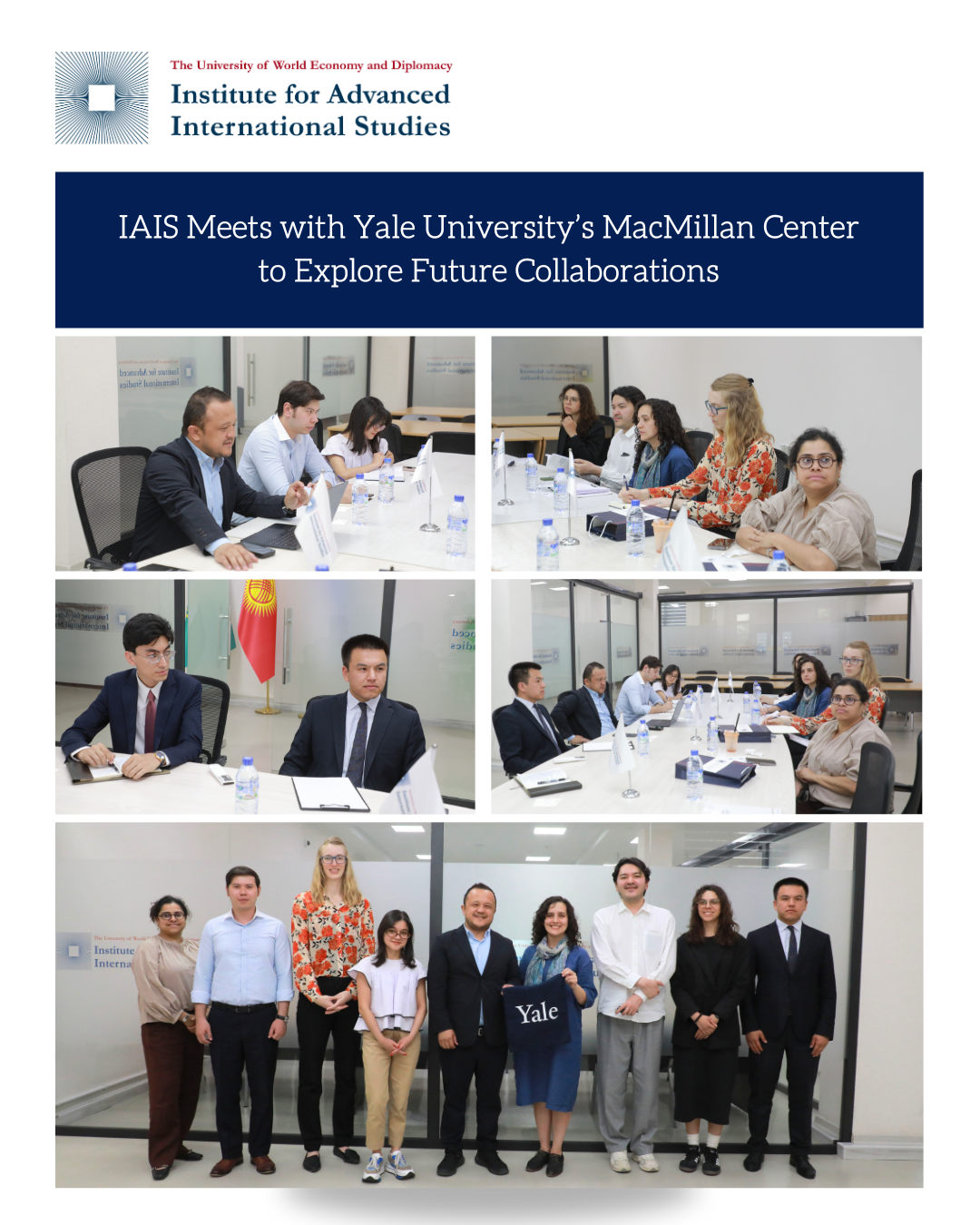
On May 22, we met with MacMillan Center for International and Area Studies at Yale University, represented by Claire Roosien, Assistant Professor of Slavic Languages and Literatures at Yale, and a staff member within the European Studies Council at the MacMillan Center; Carly Koebel, Senior Program Manager for the European Studies Council, MacMillan Center; Kasturi Gupta, Director of Programs and Institutional Partnerships at Yale; and postgraduate students, who are currently conducting research on Central Asia.
Shakhboz Akhmedov, Head of the Center for Sustainable Development, opened the discussion by emphasizing the importance of fostering international academic relationships. Dr. Islomkhon Gafarov, Head of the Center for Afghanistan and South Asian Studies, contributed insights into Central Asia’s pivotal role in global geopolitics, while Research Fellows Fazliddin Djamalov, Odilbek Manabov, and Mushtariy Usmonova offered an introduction to the activities of UWED and IAIS.
A central focus of the meeting was the potential for mutually beneficial cooperation, particularly through student and scholar exchange programs, joint research initiatives, and collaborative academic projects. The discussions highlighted opportunities for Yale and UWED to engage in reciprocal educational exchanges that would strengthen research capabilities and academic links between the two institutions.
In particular, the possibility of joint programs and projects between IAIS and the MacMillan Center was explored. Both sides expressed interest in cultivating deeper academic engagement on topics such as sustainable development, Central Asian geopolitics, and the intersections between South Asian, Middle Eastern, and Central Asian studies. The meeting underscored a shared commitment to advancing academic excellence and fostering a global network of scholars and researchers, as well as laid the groundwork for future collaborations, promising an enriching exchange of knowledge and expertise.
Looking ahead, both institutions are optimistic about the potential for long-term collaboration that will not only advance academic research but also contribute to greater global understanding of Central Asia and its strategic importance in international affairs.